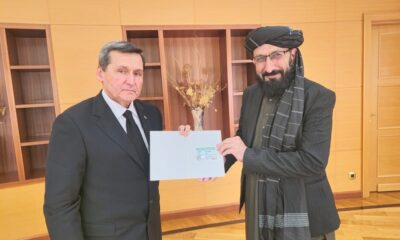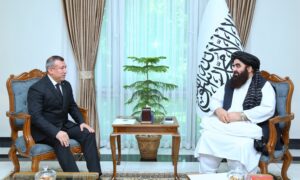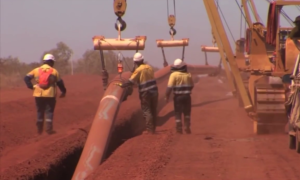Latest News
Afghanistan’s poppy cultivation falls by 85% under IEA rule
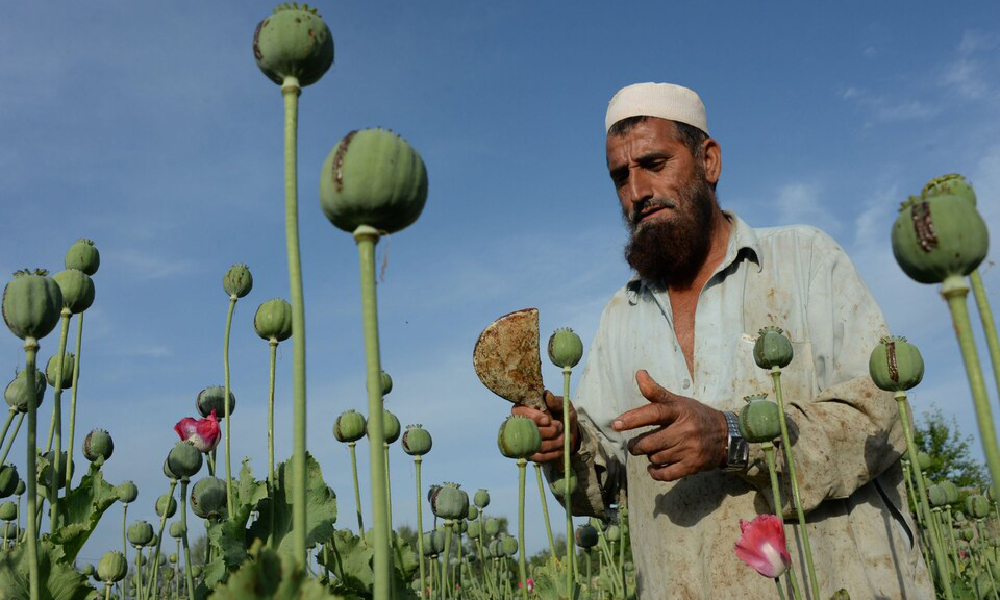
Poppy cultivation in Afghanistan has reportedly dropped by 85% following the return to power of the Islamic Emirate, new analysis shows.
In April last year, the IEA’s supreme leader issued a decree prohibiting poppy farming across the country. Almost 18 months later, the ban is being described by experts as “the most successful counter-narcotics effort in human history”.
Nationwide poppy cultivation is below 30,000 hectares for 2023, compared to more than 210,000 hectares in 2022, according to satellite imagery analysis from Alcis, a geographic information services company, the UK-based Telegraph reported.
Helmand, Farah and Nimroz have recorded the greatest reductions in cultivation, at 99, 95 and 91 percent respectively, Alcis said.
“There is now little doubt that farmers across vast swathes of the country abandoned opium production this year,” the analysis said.
After a year-long ban, experts are waiting to see if the IEA’s edict will last for a second season, which starts each November with the planting of poppy seeds.
“We are in uncharted waters,” said Dr David Mansfield, a UK expert on illicit economies in Afghanistan, in comments that accompanied Alcis’ analysis, the Telegraph reported.
Graeme Smith, an Afghanistan expert at Crisis Group, told the Telegraph in July that the IEA’s crackdown has so far been “the most successful counter-narcotics effort in human history, according to the volume of drugs taken off the market”.
However, Mansfield said there “is already considerable evidence that the current ban has not been uniformly accepted by the rural population or by those within the Taliban’s own ranks responsible for implementing it.”
Alcis’ analysis shows that poppy cultivation increased from 13,803 hectares to 15,391 hectares in the mountainous Badakhshan province throughout 2023. It said there has also been “persistent cultivation in the upper reaches of the mountains of southern Nangarhar”.
“When the economic impact of a ban on poppy cultivation is felt collectively across a growing population, local resistance can quickly escalate, prompting those in the districts responsible for enforcement to retreat, unwilling to impose further losses on their own families, neighbours, and communities,” said Mansfield.
It’s estimated the Taliban’s poppy ban has wiped out the equivalent of 450,000 full-time jobs in agriculture – a major hit to an economy still reeling from drought, conflict and cuts to development programmes.
Latest News
Turkmenistan’s foreign minister accepts IEA envoy
Meredov said at a ceremony on the occasion that Turkmenistan and Afghanistan are planning to implement major projects, so it is necessary to increase the level of diplomatic relations.
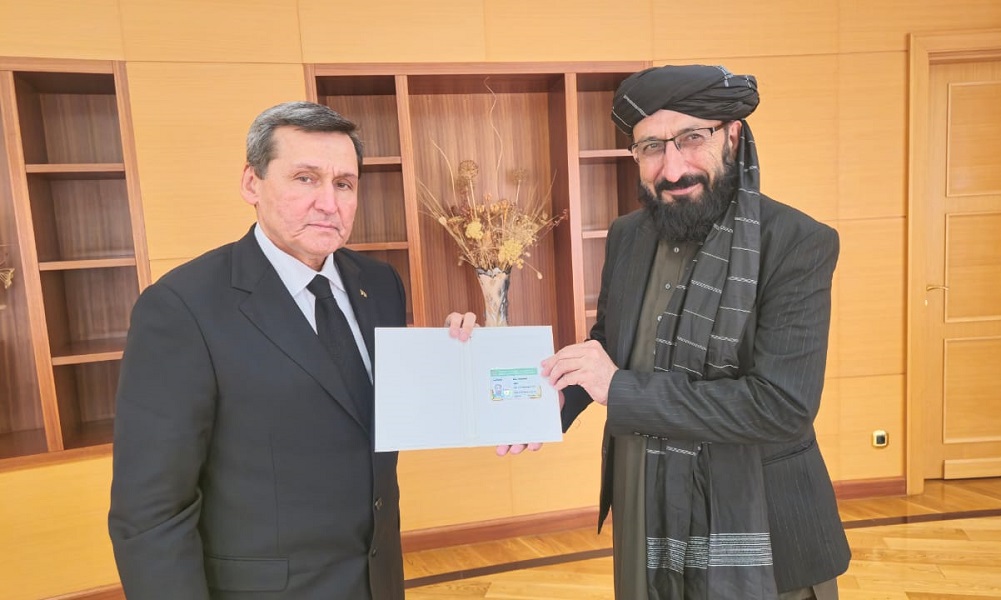
Rashid Meredov, Deputy Chairman of the Council of Ministers and Minister of Foreign Affairs of Turkmenistan, has accepted Fazl Mohammad Sabir as the Charge d’Affaires of the Embassy of Islamic Emirate of Afghanistan (IEA) in Ashgabat.
According to a statement from the Ministry of Foreign Affairs of Afghanistan, Meredov said at a ceremony on the occasion that Turkmenistan and Afghanistan are planning to implement major projects, so it is necessary to increase the level of diplomatic relations.
He expressed hope that with the joint diplomatic efforts of the two countries, the practical work of the TAPI gas pipeline, TAPI power transmission and railway between Torghundi and Herat will begin soon.
The Islamic Emirate took control of Afghanistan in August 2021, but no country has recognized it as a government.
But some countries in the region have established closer relations with the Islamic Emirate than others.
In December last year, Chinese President Xi Jinping accepted Asadullah Bilal Karimi’s credentials as Afghanistan’s ambassador to Beijing.
Related stories:
China’s president accepts credentials for Afghanistan’s envoy to Beijing
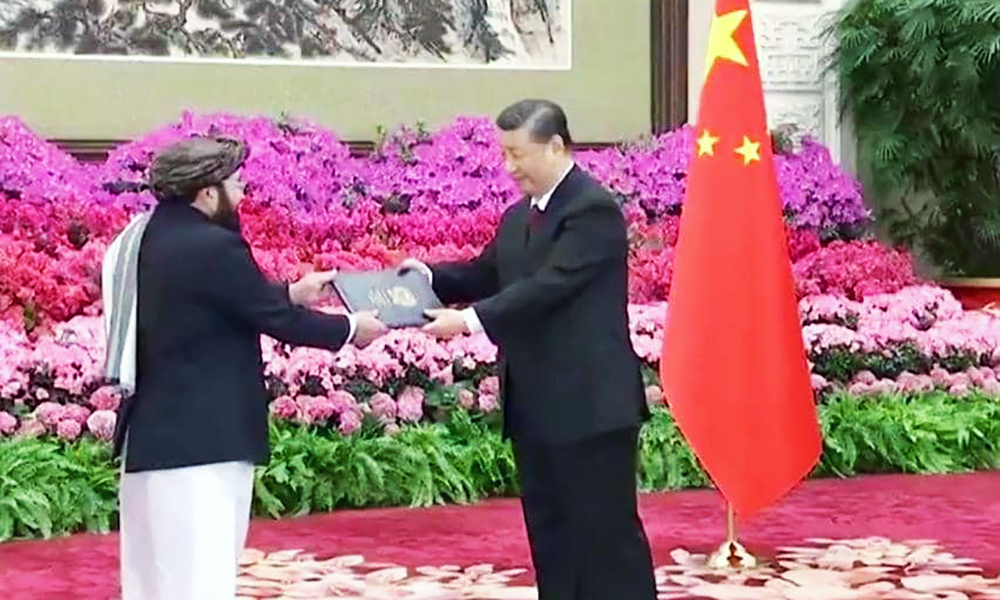
Russia continues to work on removing IEA from list of banned groups: Kabulov
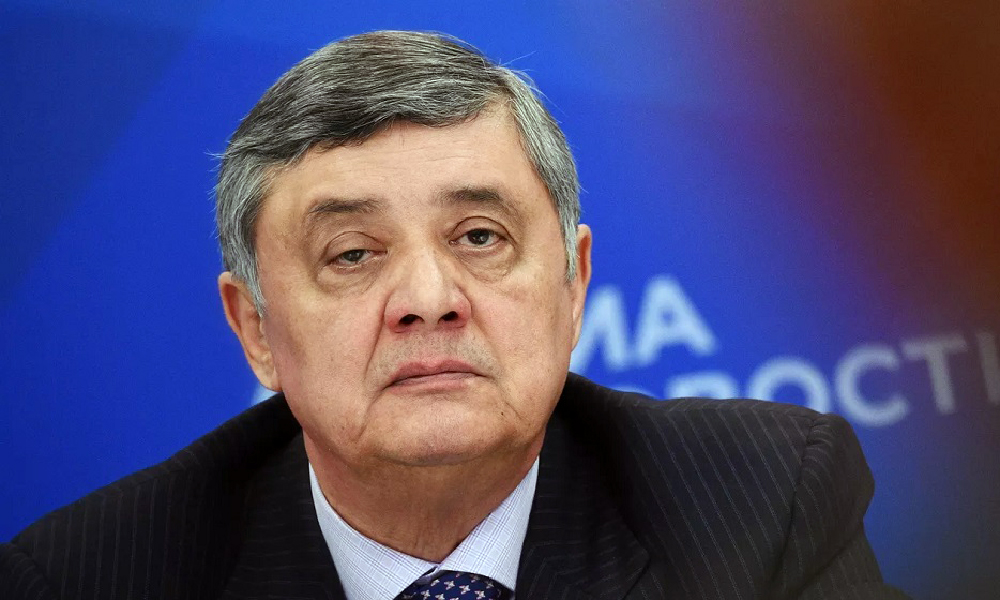
Latest News
US Congress to hold meeting to review situation of Afghan women

The U.S. Congressional Human Rights Commission said in a statement it will hold a meeting on Tuesday this week to review the situation of Afghan women.
This meeting will be held on Tuesday next week with the presence of Rina Amiri, the US special representative for Afghan women’s affairs, Heather Barr, director of the Women’s Rights Division at Human Rights Watch and a number of other Afghan women.
Based on the statement of the commission, the participants of this meeting will review the human rights issues including the situation of women and girls in Afghanistan and provide recommendations for the action of the US Congress.
“Since August 2021, the situation of Afghan women and girls has significantly worsened. A growing list of severe restrictions imposed by the Taliban has severely reduced women’s ability to participate in public life,” the statement read.
This commission also pointed to the prohibition of women from work and denial of access to education, adding that the control over women’s private lives has increased.
Meanwhile, the Islamic Emirate has always rejected concerns about the violation of women’s rights in Afghanistan and emphasized that it is committed to respecting women’s rights in accordance with Islamic Sharia.
Latest News
Pakistan and Turkmenistan agree to fast-track gas pipeline project involving Afghanistan and India
The Turkmenistan-Afghanistan-Pakistan-India (TAPI) pipeline will originate from Galkynysh, the world’s second-biggest gas field, and end at the Indian city of Fazilka near the Pakistan border.
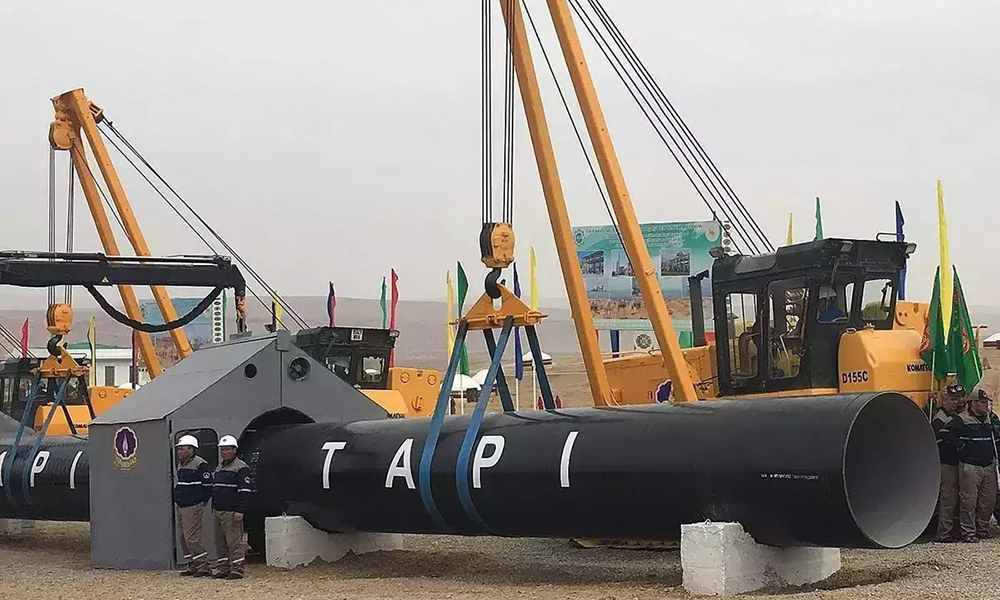
Pakistan and Turkmenistan agreed on Wednesday to fast-track a major pipeline project that will allow the Central Asian state to supply natural gas to Pakistan and India via Afghanistan, thereby enhancing economic activity across the region and benefiting all involved countries.
The understanding between the two states was reached during a meeting between Federal Minister for Petroleum Dr. Musadik Malik and Turkmenistan’s Foreign Affairs Rasit Meredow who arrived on a two-day visit to Islamabad on Tuesday.
The Turkmenistan-Afghanistan-Pakistan-India (TAPI) pipeline will originate from Galkynysh, the world’s second-biggest gas field, and end at the Indian city of Fazilka near the Pakistan border.
If the project is implemented, it will help Turkmenistan supply about 33 billion cubic meters (bcm) of natural gas each year along a route covering a distance of over 1,800 kilometers.
According to an official statement released by the Ministry of Energy’s Petroleum Division, Pakistan and Turkmenistan are working to “expedite” the pipeline project.
“TAPI pipeline project will lower energy costs, which can boost industrial growth, create jobs and foster economic development,” it quoted Pakistan’s petroleum minister as saying during the meeting. “Reliable and affordable energy supplies are vital for industrial sectors and overall economic stability.”
“This project, aimed at fostering economic integration and energy security, has witnessed substantial progress through collaborative efforts,” he continued, stressing the importance of continued engagement between the two countries.
Malik added Pakistan was fully committed to the project which was vital for regional energy cooperation and infrastructure development.
The visiting dignitary expressed appreciation for the warm welcome extended to his delegation by the Pakistani authorities.
“Together we will chalk out a roadmap for cooperation between both countries,” he added.
The meeting was also attended by the CEO of TAPI Pipeline Company Limited.
Other participants of the meeting emphasized the project’s strategic importance in enhancing regional connectivity, promoting economic growth and meeting the energy demands of participating nations.
The TAPI project was envisaged in the early 1990s and officially agreed upon in December 2010.
It has primarily been delayed due to security concerns, geopolitical tensions, funding challenges and bureaucratic hurdles.
Related Stories:
Acting FM discusses TAPI project with Turkmenistan’s envoy in Kabul
-

 Sport4 days ago
Sport4 days agoOlympics finally here; What you need to know
-

 Latest News5 days ago
Latest News5 days agoOCHA reports 110 die in landmine explosions in Afghanistan every month
-

 Regional5 days ago
Regional5 days agoChina braces for twin tropical cyclones after deadly flash floods
-

 Health4 days ago
Health4 days agoHealth partners provide services 589,205 people in Afghanistan in last month
-

 Business5 days ago
Business5 days agoConference on Islamic microfinance kicks off in Kabul
-

 Latest News4 days ago
Latest News4 days agoAfghanistan’s Hajj ministry confirms death of 27 pilgrims in Mecca and Medina
-

 Sport4 days ago
Sport4 days agoACB proposes ODI fixtures against top-tiered teams
-
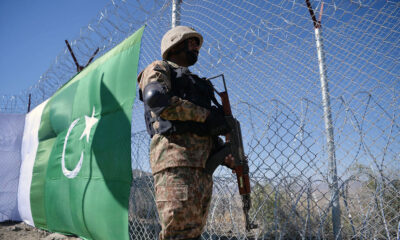
 Latest News4 days ago
Latest News4 days agoIslamabad claims three terrorists killed at Pakistan-Afghanistan border


